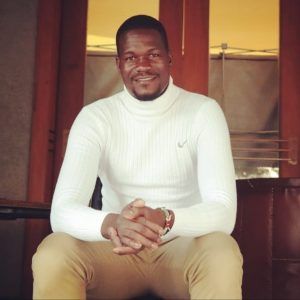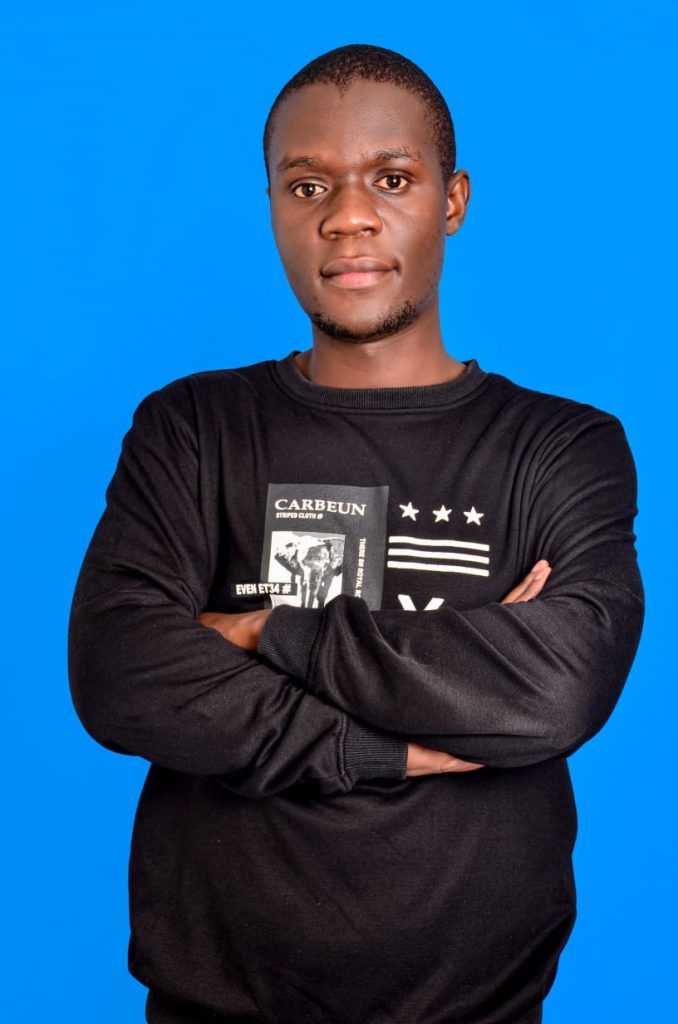Meshack Simba, better known as Mariano, was a cock of the walk – happy as anyone doing something they loved could be.
"I loved theatre," he tells me in a somewhat hushed tone. "I was great with business, too. Things looked promising," he adds, then pauses for a few seconds. This, telling me his story, isn't something that he likes doing – it's his bête noire.
"Narrating this brings back memories that I'd rather forget," he says pensively.
"We won't go too deep. I'll condense," I promise.
Mariano Simba has a soul-crushing burden: he was sentenced to ten years after being convicted of a crime he did not commit. He fought for his acquittal and was exonerated after two-and-a-half years. For now, he is trying to regain his life back, and re-acclimate into a society that he claims isn't too welcoming to people of his kind. I ask him why he still chooses to honour interviews, albeit reluctantly. "Initially, I wanted to keep it to close friends and family, but I figured I could be the perfect embodiment of the idea that if you're going through hell, keep going," he explains thoughtfully.
Before he was arrested, jail seemed obscure. He'd spend the majority of his time at the Kenya National Theatre, enthralled by his craft and waxing poetic about his love for the stage. At some point, he was part of NASWA – a popular prankster program that graced our screens back then. Theatre thrilled him, but because it wasn't particularly healthy to have so much of his life focused on one thing, he ventured into business. Everything seemed to be hitting its stride. Until one day, he found himself locked up inside a cell, accused of a crime he had not committed. He leans over, casually, and says, "Prison life is difficult, brother." He repeats those exact words, five or more times over, perhaps pondering how tough a place prison had been for him.
The framing
What did you face charges for? I keep on despite hearing a crack in his voice.
He leans over yet again, but this time he's holding his phone. He scans the internet before handing it to me. “Look,” he says. “...The Appellant Meshack Simba was charged with the offence of rape contrary to section...” it commenced. You were charged with rape? I ask, bemused. “Exactly. That is the response I often get whenever I tell this story. It is as though you are guilty until proven innocent. And it was unfortunate that my first judge treated me in that manner. I never would have appealed if my conscience hadn't been clear. The accuser was a woman I intended to marry.”
As he sits across from me in a quiet area of a hotel, Mariano tells me about being accosted by police officers who wanted a bribe to free him. He later came to learn that they had conspired with the accuser to squeeze money out of him. He assumed he would be released whether he bribed his way out or not because he never believed he would be hauled before a judge on fabricated allegations.
“I thought it was one of those silly games officers play. You know, they scare you, and you cave to their demands," he says, sighing deeply, almost nostalgically. Later, when he found himself in court answering to doctored charges, he found it strange.
In court, he walked lazily to answer to the charges, as if life had been spirited away from him. He was in disbelief, with his mind constantly whirring.
“Of course, I entered a not-guilty plea,” he says. He was granted bail and told he would have to appear in court on a regular basis. Perhaps, he admits, he lost it during that period. “Having to appear for court sessions tormented me. An occasional bottle of beer turned into careless imbibing. Some of the projects that I had crumbled.”
“How would you feel if you knew all the work and effort you put in would only go into paying lawyers?” He quizzes, the tone in his voice brooking no argument.
A case within a case
I look at him and nod. “There’s more?” I ask. He had taken out his phone and begun recording during one of the many scheduled court sessions. Unbeknownst to him, he was committing a misdemeanour. “I ended up having a case within a case. I was slapped with a hundred thousand shillings cash bail for this new one,” he lets out a staccato laugh. Even he couldn’t wrap his head around it. Whoever had dropped him into this flaming fire, he says, had done it with dexterity.
When it came time for the judge to make his decision, he found him guilty and sentenced him to ten years in prison. "You should have seen my lawyers' facial emotions and those of the people who had attended that court session," he says. “I get nightmares whenever I think about it,” he adds. At the time, his girlfriend who he had met when the case was still ongoing, was seven months pregnant. His father also needed a medical operation. He felt like everything around him was falling apart. Deep down, he concedes, he knew that he had a good chance with his appeal. "As I walked out of the dock, flanked by two police officers, I asked my lawyers to begin the process of filing an appeal."
Prison life
I ask him how prison life was for him. “It was torturous at the beginning. The bed bugs and whatnot. I got accustomed to it. The thing with prison is that you don’t live, you survive. Every single day that you wake up, the goal is the same: survive. I can say I was a bit fortunate because, with time, I was made prison governor and so things got a little better.”
"What about your other case?"
“Oh, that one. I was found guilty and then convicted for a year. That was easy for them to prove. It was a misdemeanour that most people get away with but it wasn’t to be the case for me.”
Mariano then proceeds to tell me about how torrid his appeal had been for him. “My case file disappeared for eight months. When it was later found, my lawyers discovered that it had been doctored. I won the appeal, so that doesn’t matter now.”
"What about the person who accused you?"
“I forgave and moved on.”
Mariano isn’t where he used to be before his case, but he hopes to get there, and even be better. He was released around the time the global you-know-what hit so it hasn’t been easy.
“Despite everything I have been through, I thank God for this far,” he says with a chuckle.
He now manages the Community Minds Empowerment NGO, which aids in the reintegration of former convicts back into society.
***
To assist Mariano in his endeavour, reach him via Communitymindsempowerment254@gmail.com, +254 708 536 370, or HERE.





